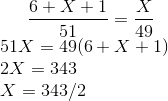An attacker has a hard time changing the past
An attacker has very limited influence to change old blocks, because he has to replace all blocks that confirm the event he wants to change and keep up with the new ones that the network is still creating.
Example:
Say, Eve achieved to control 51% of the hash rate and wants to unconfirm a transaction from 6 blocks in the past.
To succeed, she has to provide 6 + X + 1 blocks, while the rest of the network finds X blocks.
With a hash rate distribution of 51:49 solving for X:

Eve would have to sustain control of 51% of the network's hashrate for an average of 172 blocks in order to unconfirm a transaction confirmed by six blocks.
That would be approximately 28 hours and 40 minutes. My calculation is simplifying the process by expecting a fixed block interval, as in reality, mining is a random process, it could take much longer or shorter.
Change a week of history?
For a week back, X would solve to 24,720 blocks, i.e. roughly 171 days.
How much could be changed with a week of 51% hash power?
With a week of 51% hash power, one would be able to catch up roughly 40 blocks, i.e. about 6 hours and 40 minutes.
But really?
Well, 50% of the hashing power doesn't just drop off the grid for long times without anyone noticing. If suddenly all blocks took twice as long people would start to catch on, after a few hours. I'm not sure everyone would just accept a rewrite of a significant portion of the history. As when both chain forks are public, it is easy to find out what was changed in the history, there might be broad support for declaring the attacking fork invalid, or at least somebody might be able to find out who got conned, and sue in meatspace.

